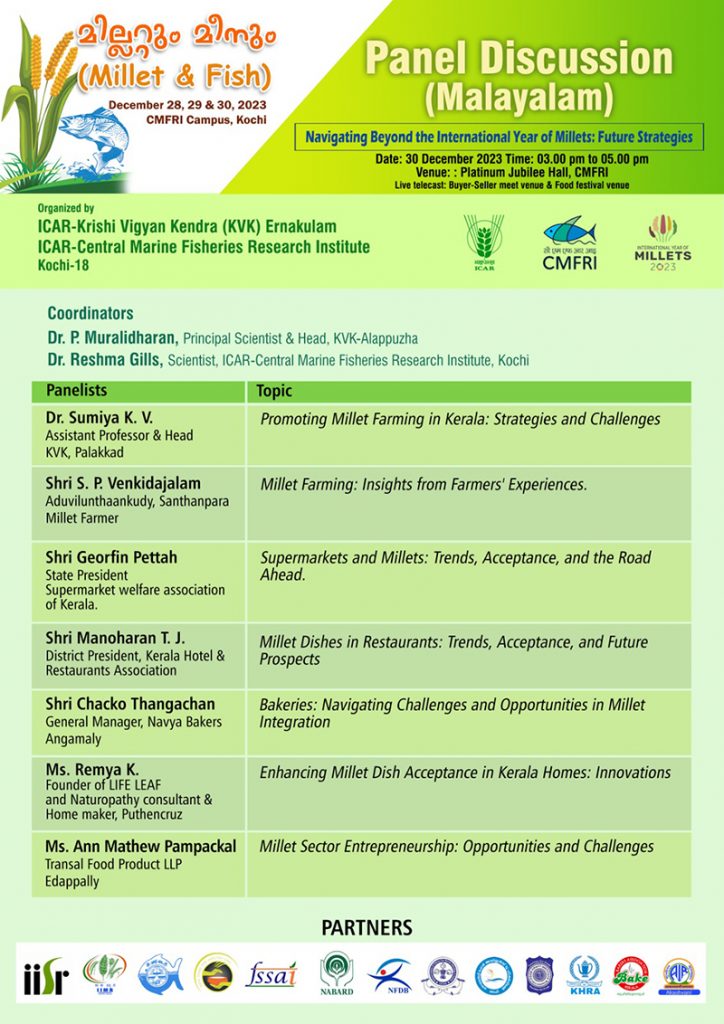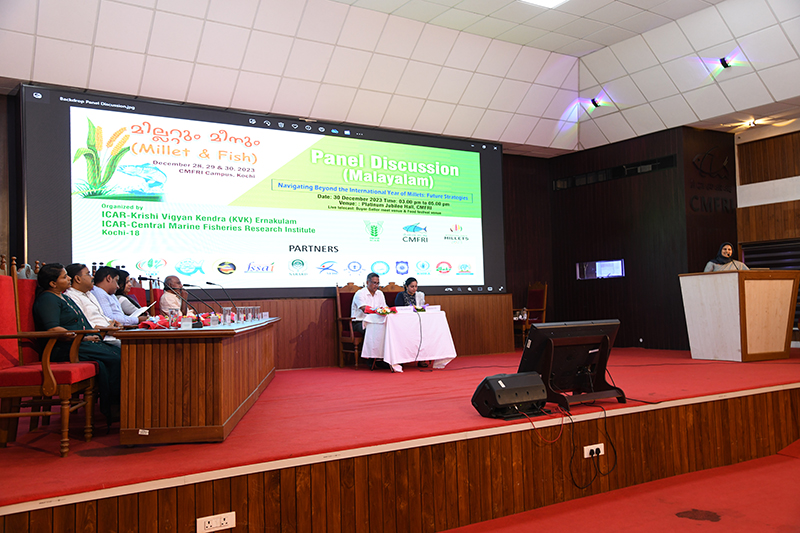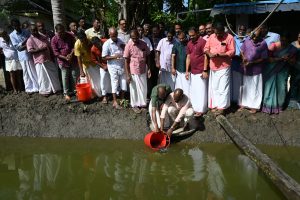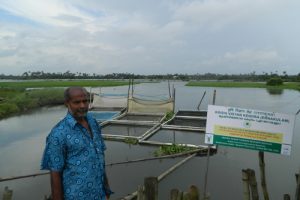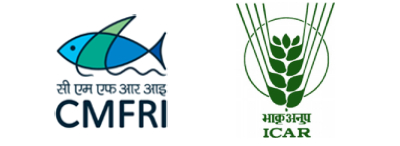The Ernakulam KVK organizeda panel discussion on 30th December 2023 on the topic Navigating Beyond the International Year of Millets: Future Strategies. Dr. P. Muralidharan, Principal Scientist & Head, KVK-Alappuzha and Dr. Reshma Gills, Scientist, ICAR-Central Marine Fisheries Research Institute moderated. Dr. Sumiya K. V., Assistant Professor & Head, KVK Palakkad, Shri. S P Venkidajalam, farmer, Santhanpara, Idukki, Shri. Georfin Pettah, State President, Supermarket welfare association of Kerala discussed, Shri. K T Rahim, District President, Kerala Hotel & Restaurants Association, Shri. Chacko Thangachan, General Manager, Navya Bakers, Kochi were the panelists.The main issues/action points for promotion of millets in the consumption chain suggested are:
- Continued Promotion and Awareness: Emphasize the importance of ongoing efforts to promote millets beyond the International Year, with a focus on raising awareness about their health benefits. Integrate millets into mainstream agricultural and dietary practices through sustained promotional campaigns.
- Support for Millet Farmers: Provide financial support and incentives to millet farmers to enhance production. Address challenges faced by millet farmers, such as wildlife threats, to ensure sustained cultivation. Ensure a consistent availability of millets in the market by establishing direct channels from farmers/FPOs to entrepreneurs, merchants, food manufacturers, and the processing industry.
- Taxation Reforms: Advocate for reduced taxation, particularly for supermarkets, restaurants, and bakeries involved in the trade of millets, promoting them as a healthy food option. Address the challenges posed by high GST rates on millet products, ensuring affordability for consumers and reasonable margins for businesses.
- Quality Assurance and Standardization: Implement quality policies and standards to ensure a level playing field in the market for millet producers, vendors, and consumers. Combat misrepresentation of millet content in products, ensuring that items labelled as millet actually contain substantial millet content.
- Collaboration and Networking: Encourage collaboration between farmers, government bodies, and businesses to increase millet production and distribution. Leverage social media and other platforms to address industry-specific challenges, particularly tax-related issues faced by supermarkets, bakeries, restaurants, and manufacturers of millet-based products.
- Innovation and Education: Promote innovative approaches to enhance millet acceptance in households, such as blending millets with regional spices and incorporating them into traditional and modern dishes. Focus on education and awareness campaigns targeting both farmers and the general public regarding the nutritional value and environmental benefits of millets.
- Market Integration for Millet-Based Products: Explore strategies to integrate millet-based dishes into restaurant menus and bakery products. Overcome challenges related to the sourcing of quality millets, limited availability, and high costs associated with millet incorporation in the food industry.
- Government Support: Advocate for government support in terms of subsidies, technology, and policies to facilitate millet farming and its integration into various sectors. Strengthen the collaboration between farmers and the government to boost millet production in the state.
